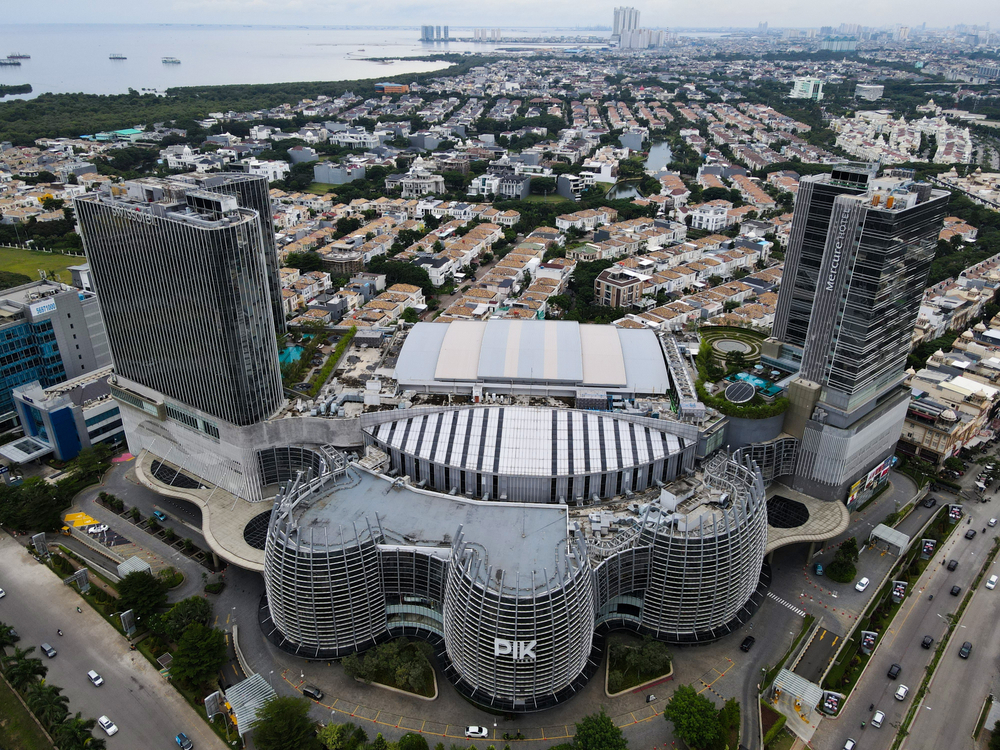Greater Jakarta retail property took a hard hit in 2020
Supply in the housing market continued to increase, while tenants in shopping centres remain hesitant

While Greater Jakarta’s housing market remains resilient during the pandemic, its retail property market took a downturn from repeated changes to the government’s restrictive regulations, reported The Jakarta Post, citing data from property consultancy JLL.
JLL outlined at a virtual press briefing that the housing market accounted for 16,000 new houses of supply in 2020, a record-high data since 2017.
Residential sales rate was 72 percent, around 13,000 houses sold, higher than condominiums in Greater Jakarta at 63 percent.
Most of the homes sold in 2020 were in Tangerang, Banten province, consisting of two to three bedrooms, priced between IDR600 million (USD42,901.32) to IDR1.3 billion.
Yunus Karim, JLL head of research, said that developers shifted their focus onto building residential homes, as well as collaborating with foreign developers.
Karim mentioned, “landed houses have ben [resilient to] the pandemic because Indonesia has socioeconomic potential that lures both domestic and foreign investors to develop landed houses here.”
“This is also because buyers with usage intent, or end-users, are more active than [buyers] with an intention to invest,” he added.
On the other hand, JLL said that the public health emergency has led to a 34,000 square metre contraction in the demand for retail space last year.
The retail occupancy rate dropped from 90 percent (2019) to 87 percent in 2020. The retail property market’s expected oversaturated is forecasted to further decline in the occupancy rate to 86 percent, according to the consultancy.
Despite the pandemic, Jakarta’s retail property experienced 25,400 square metres of new shopping centers in 2020, with the new supply predicted to reach 130,000 square meters this year.
“We are still seeing new stores opening in shopping centres. We expect the food and beverage, beauty, and fast fashion sectors to remain active this year, while the entertainment industry may still need to wait for the situation to improve before resuming [full] operations,” said Karim.
More: Horizons Ventures funds Indonesian online investment platform, Ajaib Group
As stated by Alphonzus Widjaja, chairperson of the Indonesian Shopping Centers Association (Appbi), the shopping centre occupancy rate decreased to around 70 to 80 percent.
He explained that the drop was due to tenants prematurely terminating their leases during these unprecedented times, including tenants not applying for extensions post their expired lease periods.
“In shopping centres, it is normal for tenants to come and go,” said Alphonzus. “But there was a difference. In normal times before the pandemic, there were many successors if a tenant did not extend their lease. During the pandemic, there were almost none.”
Recommended
Why everyone is moving to Selangor and Johor: Malaysia’s real estate comeback
Malaysia’s upturn in fortunes is especially prevalent in secondary destinations such as Selangor and Johor
Penang’s silicon boom: How the US-China tech war is supercharging local real estate
Penang’s booming semiconductor industry has created ripples within the local real estate sector
New leader, new opportunities: How Hun Manet is shaking up Cambodia’s real estate game
Hun Manet is overseeing decent economic growth and widening access to the country’s real estate market for foreigners
Singapore embraces inclusive housing reforms amid resilient demand
The Lion City’s regulatory strength continues to exert appeal for international investors








